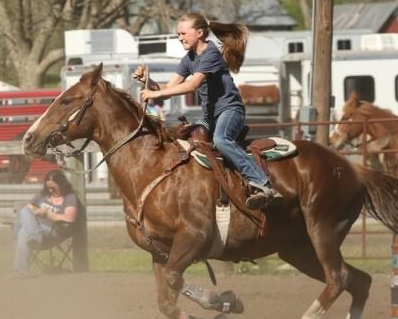While enjoying a ride with your horse on a perfect, sunny day, you sink into the saddle in pure relaxation. Then suddenly, a horse fly lands on your horse’s rear end. He swishes his tail and the tranquility of just moments ago is halted as your horse bucks mid-air to rid the biting pest. Can you relate?
“Flies cause far more damage than being a nuisance alone,” warns Dr. Arnold Nagely, DVM, co-founder and CEO of Valley Vet Supply. “Flies also contribute to significant equine diseases and conditions. By controlling the fly population, horse owners can reduce risks for a number of health challenges, such as strangles, influenza, eye worms and summer sores.”
With risks heightening as summer temperatures climb and fly environments thrive, summer sores can have a painstaking impact on equine health and comfort. While curing them can be a relentless battle, preventing them begins simply—by controlling the fly population.
Summer sores are caused by house flies, face flies and stable flies, as they transfer parasitic nematode larvae (Habronema species) to moist areas around a horse’s open wounds, eyes, nostrils, mouth and genitalia. When the larvae create a hypersensitivity reaction, chronic, fleshy and non-healing wounds can result, known as summer sores. The condition is costly and can require months off from riding and training as the infected horse heals.
Anne-Marie Morgan is a horse owner and head trainer at Miami Equestrian Club. She’s no stranger to the negative impact flies can have on a horse, especially relating to summer sores. “Lesson horses are prone to summer sores because they may acquire scrapes from supporting students over jumps and poles, or playing in the paddocks. Thankfully, we have a very clean barn with a great fly spray system that keeps flies, and the risks they present, to a minimum,” Morgan said.
South Florida-based dressage rider, Miriam Wohlers, also shared how, “In the summertime, it is a constant battle with summer sores. Flies are horrendous, due to the constant humidity. All you can do is work to contain the flies.”
Flies can be relentless, especially during the summer months. Reduce the fly and insect population at your horse barn with these simple strategies.
Stop flies before they hatch
Insect growth regulators pass through the manure of treated horses, preventing flies from developing into adults by inhibiting the development of the exoskeleton in fly larvae.
Barn managers also have success in eliminating the fly population using fly predators, which are beneficial bugs that conquer the fly’s cocoon and kill immature pest flies naturally.
Clean stalls and paddocks daily
Regular cleanings help rid fly-attracting odors and the warm, moist environment that is a fly haven for laying eggs and source of food.
Remove manure piles off-site from pastures, or spread manure over fields and paddocks, to help dry out piles and attract fewer flies.
Hang fly traps
From sticky traps to fly-attractant bags that can catch up to 40,000 flies, there are many options horse owners can find to stop flies.
Maintain a tidy barn
Remove dropped grain and supplements from stalls and feed rooms; doing so also will help prevent visits from opportunistic rodents.
Place tight-fitting lids on all garbage cans to stop flies from enjoying an all-you-can-eat buffet, plus prevent wafting, unpleasant aromas with regular cleanings.
Empty and scrub feed tubs and water buckets regularly to help keep flies at bay, as well as ensure horses have access to fresh, clean water at all times. A horse consumes an average of 10 gallons of fresh water per day.
Use premise and fly sprays
Using a premise spray quickly controls adult flies and other barn-residing insects, as well as helps deter new ones from entering the area. Fly spray is a must for quick and easy on-horse protection against flies. For the best results, make sure your horse is clean, so the spray sticks to the hair, not to dirt or mud.
Ensure protection through fly gear
Fly gear—such as fly sheets, masks and fly boots—also offers more protection than from a fly’s painful bite alone. Fly gear can provide UV protection for horses, with some sheets and masks blocking more than 80 percent of harmful UV rays.
Increase air circulation with fans
Circulating air helps to deter flies, because the air requires more work and energy from flies to travel to and land on your horse.
To help shield her mare from flies and South Florida heat, Wohlers has three fans mounted and running in her mare’s stall at all times during warmer months. Coupled with using fly spray—she prefers UltraShield Green—she also regularly washes and switches out five fly masks, and uses fly traps.


